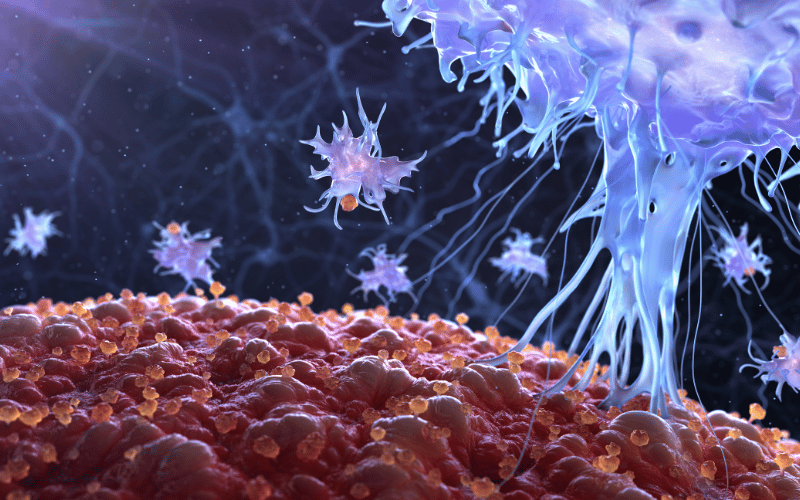Introduction: Unmasking Hemophagocytic Lymphohistiocytosis

Stepping into the world of Hemophagocytic Lymphohistiocytosis, or HLH, is a journey through a labyrinth of immunology, genetics, and individual health battles. A relatively obscure syndrome, HLH is more than just a mouthful of medical jargon. It’s an overactive immune response, a fight between the body and itself, an internal war that leaves the affected individual battle-scarred.
HLH is, in essence, the body’s immune system going haywire. When most of us encounter an infectious agent, our immune system kicks into high gear, destroys the invader, and then calms back down. But for people with HLH, their immune system doesn’t know when to stop. Instead of shutting down, it continues to rage on, damaging the individual’s own tissues and organs.
Hemophagocytic Lymphohistiocytosis is no respecter of age. It can strike both children and adults. Children with this condition often have a family history, hence the term familial HLH. On the other hand, adults typically have no such history and are often diagnosed with secondary HLH, triggered by infections, cancer, or autoimmune diseases.
In this journey, we delve into 15 key facts about HLH. We will uncover what happens when the immune system spirals out of control, understand the challenges in diagnosing this syndrome, and explore the various treatment options.
Fact 1: Understanding HLH

Diving headfirst into the world of Hemophagocytic Lymphohistiocytosis (HLH), let’s set the foundation by explaining what this condition actually is. HLH is a severe systemic inflammatory syndrome. It’s like an uncontrolled wildfire burning through the body, causing widespread inflammation and damage.
Your immune system is designed to protect you. It detects foreign invaders, like bacteria or viruses, then deploys an army of cells to destroy them. But in HLH, this well-oiled machine spins out of control. The immune system shifts into overdrive, attacking not only the invaders but also your own cells and tissues.
The severity of HLH lies in its unrelenting nature. The immune system continues its destructive spree, leading to an overproduction of inflammatory proteins. This uncontrolled inflammation can ultimately result in tissue destruction and organ dysfunction.
You may wonder what triggers this aggressive immune response. In many cases, it can be an infectious agent, like a virus, but it can also be tied to genetic mutations. The bottom line is, your immune system is trapped in a vicious cycle of inflammation, and it’s this persistent attack that characterizes HLH. (1)